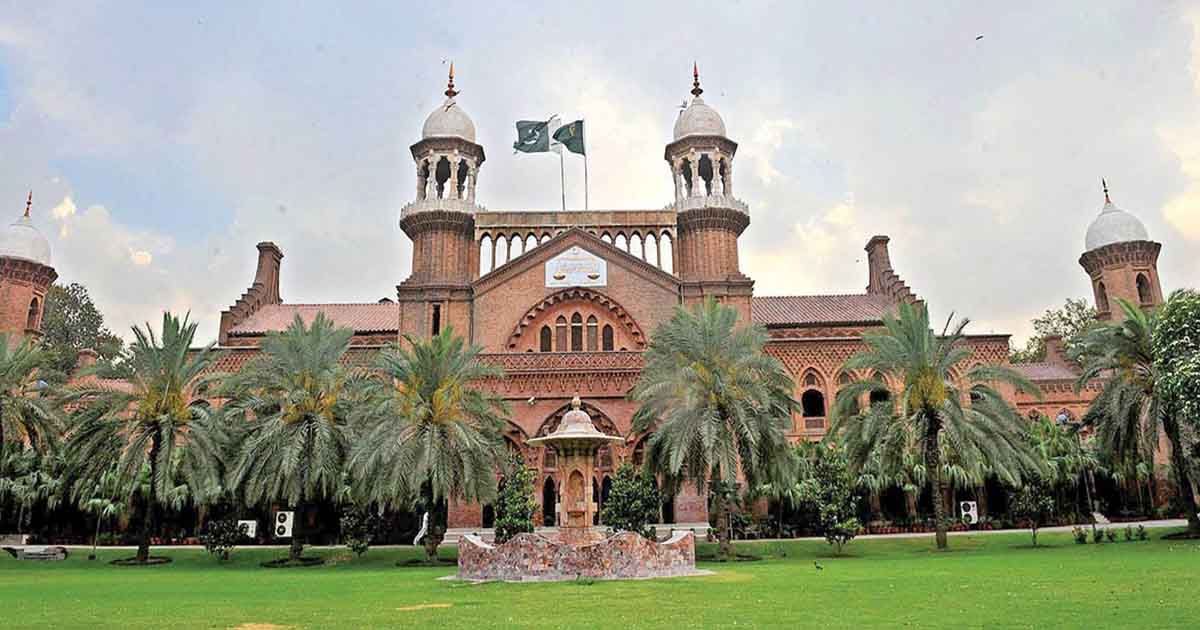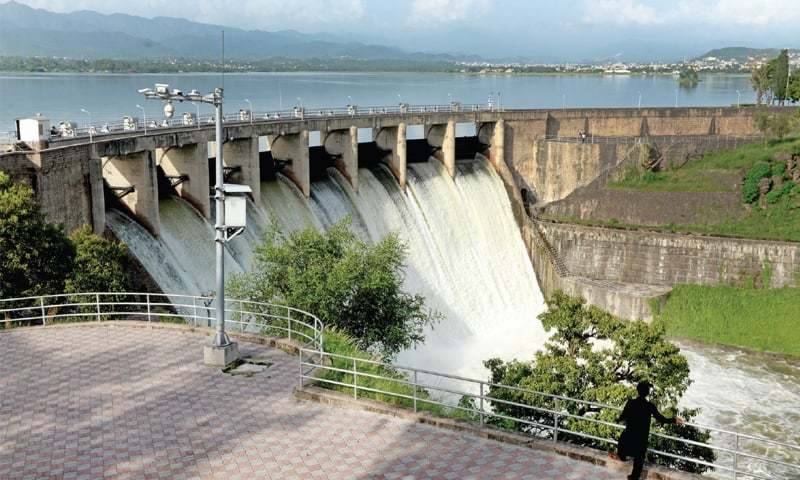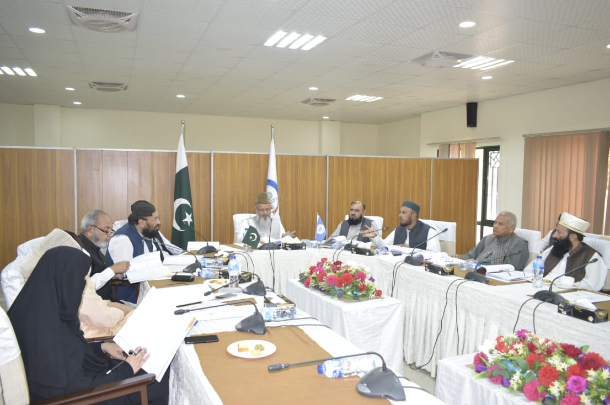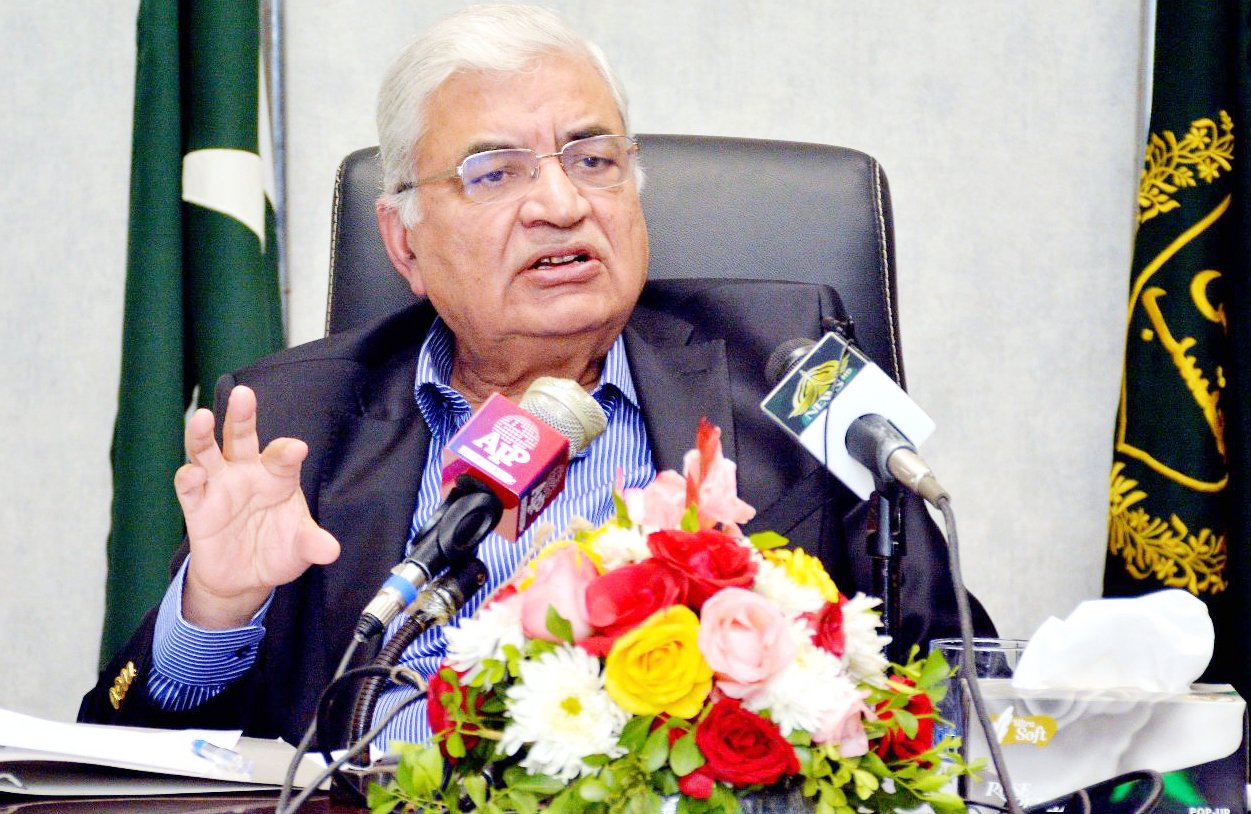ISLAMABAD, Jun 08 (APP): Coordinator to the Prime Minister on Climate Change, Romina Khurshid Alam on Saturday said the role of judiciary has become imperative to ensure ‘Climate Justice’ through oversight of policy decisions and interventions to address galloping impacts of environmental degradation on the country.
She was addressing as chief guest at the closing ceremony of the climate change conference titled “Navigating Climate Governance: Executive Action and Judicial Oversight” organised by the Law and Justice Commission of Pakistan here at the Supreme Court of Pakistan.
Romina Khurshid Alam said the judiciary safeguards public dignity and interests against threats to environmental justice, whereas the Supreme Court had set great precedent through landmark environmental judgements.
She added that the Ministry of Climate Change and Environmental Coordination had developed robust policy frameworks like Climate Change policy, Climate Change Act and also initiated ambitious projects like GLOF-II, Living Indus Initiative, Green Pakistan Programme and creation of National Climate Change Authority to spearhead climate action.
After the 18th amendment, she said the four provinces had established their climate change policy whereas the remaining two were to make their policy by the Supreme Court.
She added that technological advancement, innovation, coordination and collaborations among all stakeholders were critical to ensure all-inclusive climate resilience.
Ambassador of Republic of Azerbaijan, Khazar Farhadov in his special remarks extended his felicitations to the Supreme Court for successfully holding climate change conference. He said Azerbaijan was committed to host COP-29 global climate moot in Baku amid extremely evident impacts of climate change amid surging Greenhouse Gas emissions disrupting nature of balance globally.
He added that recently President designate of COP-29, Mukhtar Babayev acknowledged Pakistan’s climate action commitment, whereas Azerbaijan was elected in December 2023 unanimously by all countries that showed its credibility.
Ambassador Farhadov said Azerbaijan would mobilise international community on reducing carbon emissions and unite the entire world for collective efforts.
“Climate finance will be an important part of the negotiations at COP-29, whereas Azerbaijan has put climate action at the heart of its policies and interventions. Azerbaijan is the leading country of the region in renewable energy transition,” he said.
Earlier, during the panel discussion titled “Court-ing Climate Change”, Ahmed Rafay Alam, Environmental Lawyer and Climate Activist said the earth’s delicate ecological balance that enabled human species to implement activities like agriculture to support prevailing civilization was at risk.
He added that the previous year was the hottest evert since the past 2000 years that eroded the delicate balance between nature and human civilization which was over.
“Asian heatwave 2024 has decimated crops in Sindh, whereas the wettest month of 2024, April caused over hundred deaths, whereas pneumonia killed hundreds of children in Punjab,” he said.
He pointed out that existing environmental law only dealt with industrial pollution and did not address biodiversity in totality, whereas the legal system needed to adapt with the changing world.
Director Federal Judicial Academy, Muhammad Amir Munir said Pakistan has 133 constitutional Court judges whereas members of district judiciary were 3200 whose verdicts remained less publicized.
He urged the members of judiciary to consider not only legal but also environmental perspective in line with the UN, international laws and treaties with human rights and security at its core.
Judge Lahore High Court, Justice Jawad Hassan said the Supreme Court had passed remarkable judgements that made Pakistan a better country by the rest of the world.
He commented that climate justice was for adaptation, whereas the court’s role should be oversighted to ensure that the funds intended to address climate resilience initiatives were spent accordingly.
“Judiciary in Pakistan protects investments and it’s a green judiciary. However, with the arrival climate finance pouring into Pakistan, there will be a floodgate of cases in Pakistan,” Amir Munir said.
Judge Supreme Court of Pakistan, Justice Ayesha A. Malik said there was an increase in the cases of climate change litigation, adding, “There is no direct or ready formula to connect climate change with human rights but there is something that has to be crafted and brought into the system. Judges can’t resolve climate change but rather identify rights and duties and state action which is necessary.”
She added that the courts could encourage the government and relevant departments to mull over climate change impacts and devise policies accordingly for a resilient society and better climate governance.
“Women are the most impacted during climate crisis, whereas community participation is important that gives government insight to the issue and the court can enhance government insight and humanize the issue for propitious and well-coordinated actions,” she said.
Justice Ayesha Malik the courts have developed public private partnerships through judgements for infrastructure development, whereas the court directs government to submit regular reports to monitor and ensure compliance that would create data, required information, ongoing monitoring, addressing delays, transparency and accountability in the system.
“The judiciary has to adopt innovative and creative approach towards climate change cases, think about planet and coming generations read and update yourselves to think climate, rights and create solutions,” she said.
Senior Puisne Judge, Supreme Court, Justice Syed Mansoor Ali Shah said all judges needed to consider and uphold human rights during climate cases and would have to develop biocentric approach to restore nature instead human-centric approach.
“When you protect nature’s dignity you automatically protect human dignity. However, the Apex Court is thinking over incorporating green alternate dispute resolutions (ADRs) in our approach, whereas commercial courts would be the best venue for addressing climate change cases at district level,” he said.
Justice Shah underlined that the nation would have to bring change in its lifestyle amid changing climate, whereas the apex court should also consider low carbon footprint and efficient energy consumption prospects to conserve environment.














